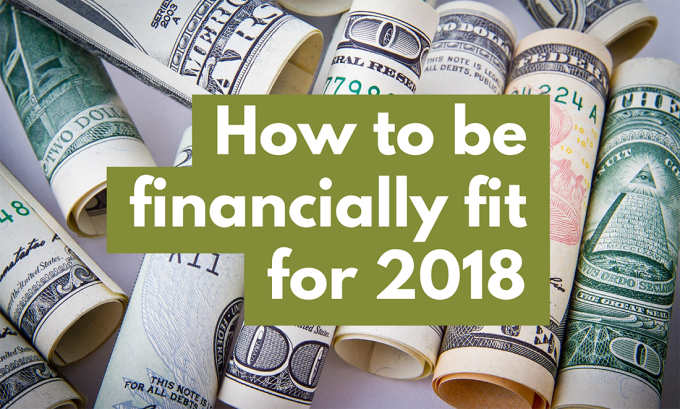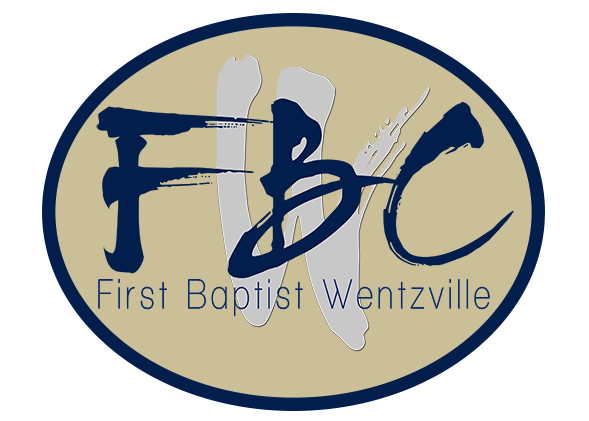
If being financially fit is one of your goals for 2018, you need to start planning now.
If you are like most people, you have made a few New Year’s resolutions. Many of you are probably thinking of becoming more physically fit. You may be dieting in order to control your weight. Or, you may be going to the gym more often or for the first time. We all have good intentions this time of year, but it takes more than good intentions to reach our goals. In Luke 14:28-30, it says: "For which of you, intending to build a tower, does not sit down first and count the cost, whether he has enough to finish it, lest, after he has laid the foundation and is not able to finish it, all who see it begin to mock him, saying 'This man began to build and was not able to finish.'" You need a plan!
I once knew two district managers with plans to improve results in their respective districts. I will call them District Managers “A” and “B.” Manager “A” had a much better plan than Manager “B,” but at the end of the year, District “B” outperformed them. “The reason” you ask? Manager “B” executed his plan, while Manager “A” did not. The point is it takes a plan, but it also takes execution of that plan! And, the sooner you implement the plan, the sooner you will see results. If being financially fit is your resolution, you need to start planning now. Don’t let your efforts fail because you didn’t plan. Finish your “tower” and get control of your finances. Consider the following:
Where do I want to be financially by next year?
Where would you like to be by the end of 2018 with your finances? Would you have less credit card debt? No house payment or car payment? What about no student loan debt? Would you like to have an emergency fund to handle those unexpected problems that crop up during the year like car repairs, medical bills, loss of a job, etc.? How about a fully funded retirement plan? A plan will help you reach your goals. The plan needs to be for specific actions that you will carry out THIS year! We teach in Financial Peace University a set of steps to follow that breaks it down into small “bite-size” actions. If you are serious about becoming financially fit, you might consider enrolling in the February class.
How can I get started reducing or eliminating debt?
There are two basic steps to eliminating debt:
First, you need to stop accumulating debt. To get out of a hole, you have to stop digging. You need to quit charging for things or taking out loans. Likewise, I would warn against debt consolidation because you are just trading one kind of debt for another. And, in many instances, you may be trading unsecured debt for secured debt. More than anything, you must look at debt differently than in the past. God does not wish you to be indebted. In Proverbs 22:7, it says: "The rich rules over the poor and the borrower is servant to the lender." You have to truly despise debt. If you do, you will pay it off faster and can be rid of it forever. That does mean you might have to delay some things you want! But, if you delay those purchases that would require more debt, you’ll reap the rewards later.
The second step to eliminating debt is to develop a budget and stick to it. And, you need to do so EVERY month for the rest of your life. I know that is a big commitment, but it does become fairly simple after the first two or three months. A budget does not mean you cannot spend money. It simply means you consciously tell your money where you want to spend it instead of waking up at the end of the month and wondering where it went! Scriptures say: "Be diligent to know the state of your flocks, and attend to your herds." Proverbs 27:23. You need to know the state of your finances (“flocks”) and plan for them.
What are my biggest obstacles?
Money problems affect us all. It would be nice if everyone was debt free with no money worries. Making changes in how we handle money is difficult. But, once you identify the obstacles that have held you back in the past, you can deal with them. Those obstacles may be spending money you don’t have, family members who spend money too freely, etc. Does it seem like everything becomes an emergency and puts you back into debt? Maybe an emergency fund, or as we used to call it “a rainy day fund” is the answer.
Financial Peace University classes can teach you how to identify and overcome your own financial obstacles. For a more personalized plan, consider meeting with a financial coach who can offer an independent perspective to help you reach your goals. We have both available through the church.
And, last but not least, remember to "Be anxious for nothing, but in everything by prayer and supplication, with thanksgiving, let your request be made known to God; and the peace of God, which surpasses all understanding, will guard your hearts and minds through Christ Jesus" (Philippians 4:6-7). God wants us to be active in resolving financial problems, but He wants us to understand He has a plan and if we ask Him for that plan and abide in Him, it will all be as it should.
So, now that you’ve faced the hard questions, are you ready to do the work to become financially fit? With the right level of determination, a little bit of planning, and a whole lot of prayer, you can do it!

